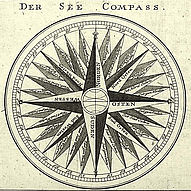
Studies
At the University of Regensburg, you can enrol in the course of History of Art as part of a combinational Bachelor's programme (B.A.) as well as for the consecutive Master's programme (M.A.).
The Bachelor's degree programme is not subject to admission restrictions.
For the Master's degree programme, an application for admission is required.
By attending the courses offered by the Institute of History of Art, you take up the opportunity to cover the subject of history of art in its entire field of epochs and genres:
- Painting, Sculpture and Architecture as well as Arts and Crafts, Design, and New Media: from the Christianisation of Europe to the Present Day
- Global Art History and Transcultural Processes: from Pre-Modern Times to the Contemporary
In addition, the courses reflect the lecturers' research focuses. Therefore, the opportunity of research-related specialisation arises at an early stage of your studies in following fields:
- History of Bauhaus and Modernism
- Cataloguing of Artists' Estates from 1900 to the Present Day
- Art after 1945 and Political Iconography
- Connections between Film History and History of Art
- History of Perception and Empirical Aesthetics (Eye-Tracking)
- Digital Art History
- Architectural Theory and Writing and Publishing on Architecture from 1450 to 1800
- Geographical Information Systems (GIS) in History of Art
- Painting and Sculpture from Pre-Carolingian Times to the Late Gothic Period
- Urbanism of Italian City States
- Manuscript Illumination
- Medieval and Early Modern Applied Arts
- Sociology of Artists in the Middle Ages
- Epigraphy
- Transcultural Visual Studies: Europe and the Middle East
- History of Art and Visual Arts Education
If you are interested in cross-curricular specialisation, you should take a closer look at the fields of Digital History of Art, Film and History of Art, and Art and Law.
History of Art at the University of Regensburg offers numerous practice-oriented courses in the fields of museology, curatorship, provenance research, preservation of historical monuments as well as the art market. You have the opportunity to participate in lectures given by leading experts of cultural institutions.
Regular visits to international exhibitions, such as Art Basel, the Venice Biennale, and other ground-breaking exhibitions, in addition to major field trips organised by the Institute of History of Art will form an essential part of your course of study. Early on, you also have the opportunity to participate in international workshops, conferences, and symposia.



